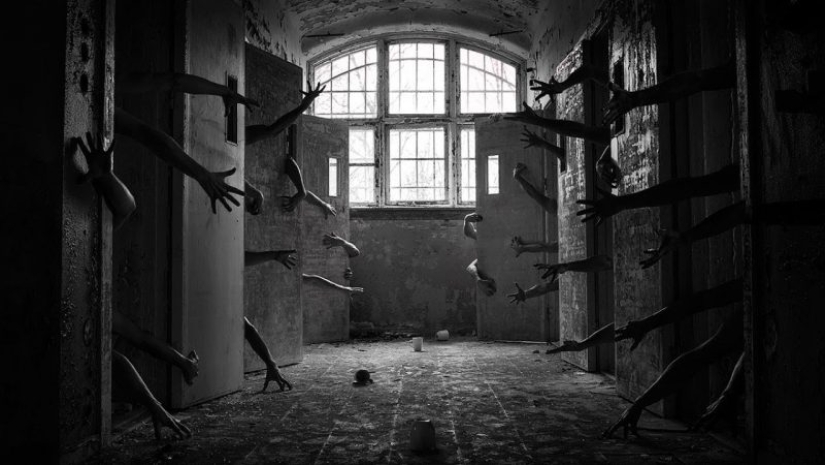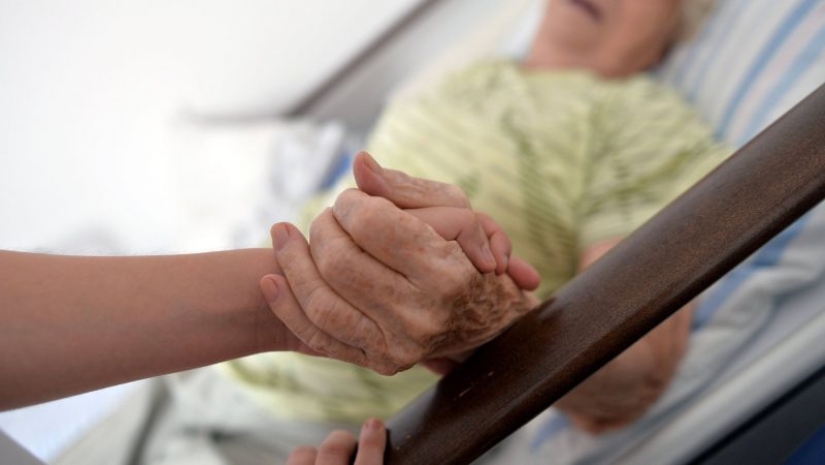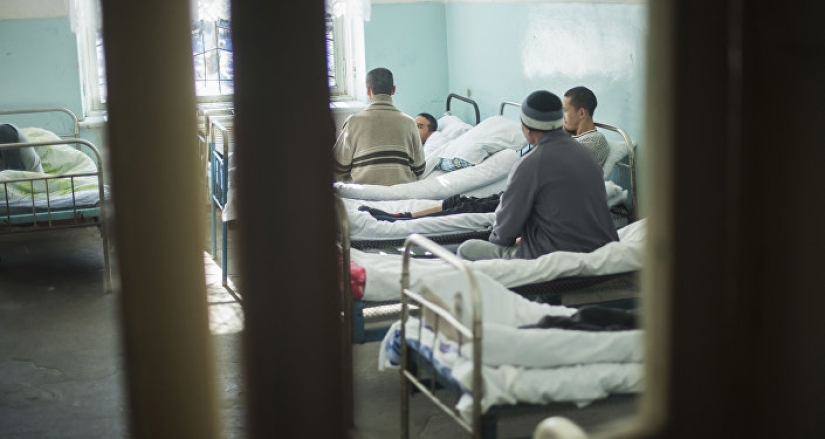The former nurse of the mental hospital frankly told about what is happening within its walls
Categories: Health and Medicine | Society | World
By Pictolic https://pictolic.com/article/the-former-nurse-of-the-mental-hospital-frankly-told-about-what-is-happening-within-its-walls.htmlPsychiatric clinics often become the main acting place in many horror films. This is because a sinister, mystical aura seems to hover around such establishments, and its guests, who often do not understand themselves, inspire fear and distrust.
But is it worth believing what is shown in the films? Maybe it's not as creepy in mental hospitals as we think? The answers to these questions were given by a former nurse of a mental hospital in Estonia. Below are the words of the author.

When my mother moved to another city in search of a new life, it was necessary to somehow earn a living. There was no choice, and she got a job at a boarding school as a cleaner. Among its own, it is simply called the House. A little more than 200 people live there permanently.

The house is located away from the city noise. There is an old park next door. The buildings-departments are connected by galleries. There is a food hall and an assembly hall, a day employment center, a laundry room, a garage, workshops. Everything is equipped according to modern standards. They work in The house has about 90 people. These are social workers, nurses, orderlies, a psychiatrist, a paramedic, a family doctor, kitchen workers, laundresses, drivers and other workers.
Patients are called wards here, because all these people need care. Women are affectionately called "girls", and men- "boys".
I often stopped by to see my mother at work. So I got into a world hitherto unknown to me, which at first made an ambiguous impression — from fright to genuine childish curiosity. During the summer holidays, I started working part-time as a cleaner in a disabled home. In addition, I took walks with my wards on the territory of the House, engaged in creative and entertainment activities with the children: drawing, games. Over time, she grew up to be a nurse.

The ways of the inhabitants of this house here are different, as are the diagnoses and previous destinies. Some come here from orphanages for children with various forms of congenital or acquired mental underdevelopment (dementia) in early childhood. They are sent here after reaching their 18th birthday. Others end up here as a result of severe mental disorders, which are characterized by various manifestations and tend to have a chronic course.
The boarding house consists of three buildings and four departments, each of which has a certain category of patients. There is a men's department, there is a women's department, there is also one closed men's department and a department for especially serious patients suffering from dementia. In it, men and women are kept together. The last, most difficult department fell to my lot.

The contingent of patients who are here is specific and requires employees to get used to and adapt. Seriously ill people suffering from dementia are in some sense akin to plants, which should be constantly cared for, since they themselves are not able to take care of themselves. These people live more by animal instincts. Only a few of them can be heard intelligible speech, and mostly the sounds made by most of them are inarticulate. These can be individual words or sounds that are repeated from day to day: lamentations, screams, hisses, chants.
At first, of course, all the habits and behavior of patients scare you away — you see something different from the behavior model of the people around you, but soon you realize that these people do not pose any threat and danger to your life. Yes, mentally ill people are unpredictable in their actions and actions, and you can expect anything from them, but no more than from the people who surround us in everyday life. They are not alien to such feelings as love, friendship, empathy for each other and other emotions that a simple person can experience. Only it is much more touching to observe the manifestations of their feelings, because they are the most open and sincere in their actions.
Once, after finishing breakfast in a specially designated dining room for the seriously ill, a ward girl got up from her table and, slowly shuffling her feet, began to move towards another table, where a similarly seriously ill boy was sitting. They both resembled plants: closed in themselves, not noticing anything around them, almost not responding to external stimuli. The boy was sitting at his plate and was focused on it so that if I had approached from the side, most likely, he would not even have noticed me. The girl stood behind him. She slowly stretched out her hand to touch his back, but before he could physically feel the touch, the boy turned around, sensing her presence from behind, and just as slowly began to get up and leave the table.
They linked arms and walked slowly along the corridor. I stared after them for a long time, frozen in one position, like a petrified statue.

It was awkward, but it was so touching. This is not an isolated case of a romantic relationship between the wards. There are plenty of love stories in the walls of the House. There were even cases with weddings. Everything is as it should be: a real registration, an exchange of rings, an oath of eternal love and, of course, the celebration of the wedding itself. Although these are more experimental events. Some couples are even allowed to live together in separate VIP rooms with a small kitchen where they can cook themselves, and a shower room. All conditions for living a full-fledged married couple.

Some wards are working. They work in the perimeter of the House: they clean the territory, carry dirty laundry to the laundry and bring back clean ones, help in the kitchen and in the dining room to collect dirty dishes, perform some locksmith work. For their work, they receive a salary that they can spend on their needs, make savings, buy themselves mobile phones, televisions and other useful household attributes.
Sometimes you can hear chilling details about boarding schools. Fortunately, nothing like this happens out of the ordinary in the walls of my House. When working with the mentally ill, I learned two things: you can't feel sorry for them and you can't be afraid of them. If you are afraid of them, they feel it very well, just like dogs when people are afraid of them. It is necessary to behave with them confidently and on an equal footing, without detracting from their merits, to encourage, to be friendly with them. In short, do everything to make it clear to patients that they can trust you. But at the same time, it is important that they recognize your authority.

The staff tries to create an atmosphere of home for the wards. The boarding house is clean and tidy. The wards live in rooms for 2-3 people, furnished with good furniture. The House is always warm, cozy and satisfying. The wards are always dressed for the season. The clothes are good and clean.
The wards, and there are more than 200 people, need a kind word, a friendly smile, a friendly conversation no less than warm clothes and a hearty meal. There is a lot of talk about the social rehabilitation of the mentally ill and disabled, and, importantly, much is being done, but the main issue, it seems to me, is hanging in the air. Are we able to accept these people into our world? Other people…
Keywords: Hospital | Mentally ill | Clinic | Psycho | Mental hospital | Psychiatry | Psyche | Mental disorders | Psychosis | Orderlies
Post News ArticleRecent articles

It's high time to admit that this whole hipster idea has gone too far. The concept has become so popular that even restaurants have ...

There is a perception that people only use 10% of their brain potential. But the heroes of our review, apparently, found a way to ...
Related articles

Hollywood actors earn a lot of money, sometimes risking their own lives. During the filming, many stars are injured while ...

War is always death, pain, suffering and deprivation. It is quite clear that no one wants these already terrible things to be ...

Just a century ago, half of the diseases were treated with bloodletting and leeches, and 50 years ago, depression was cured by ...

New Year's is a time to surprise and delight loved ones not only with gifts but also with a unique presentation of the holiday ...